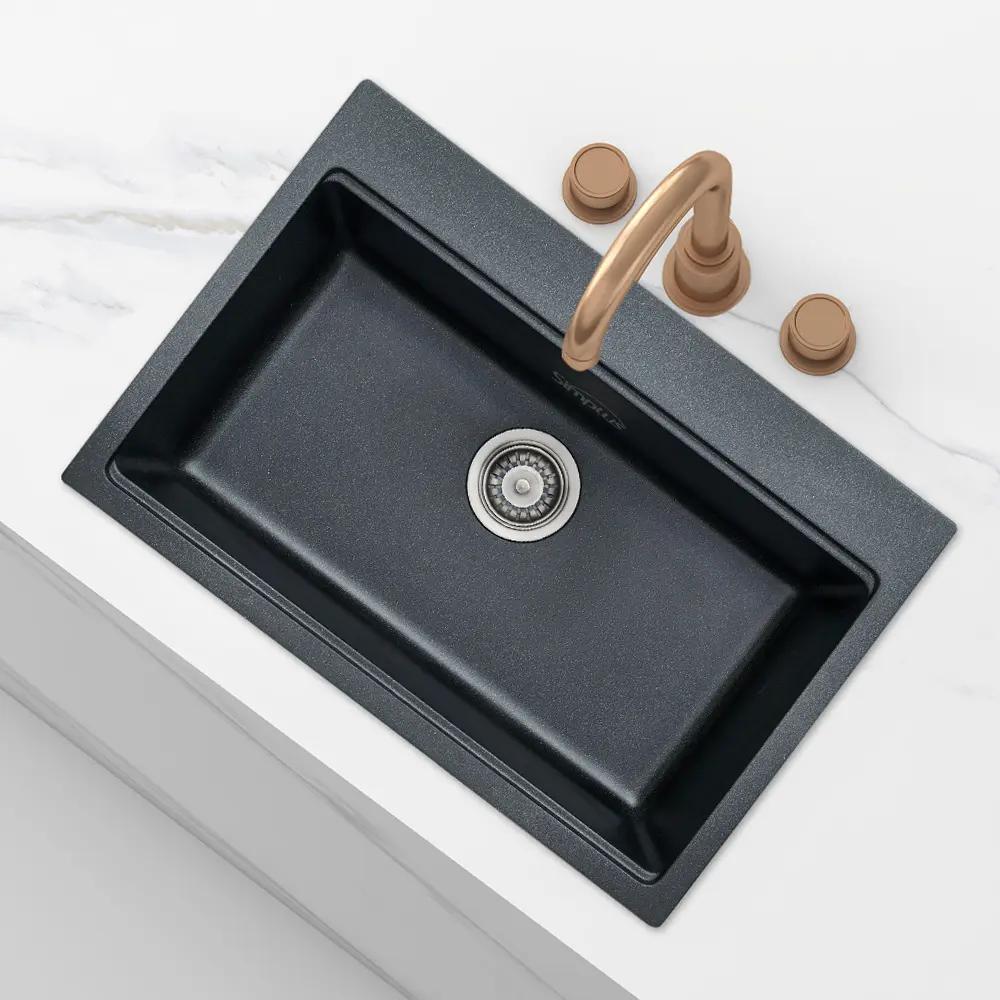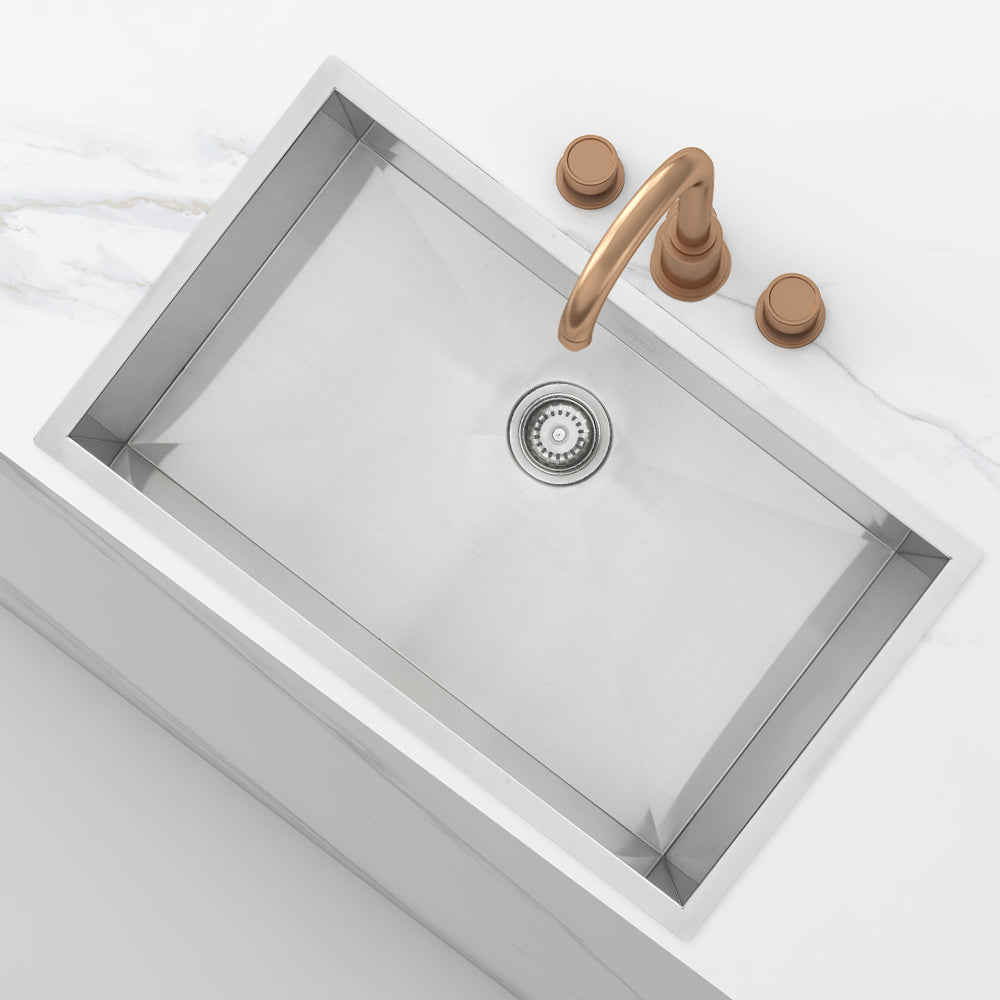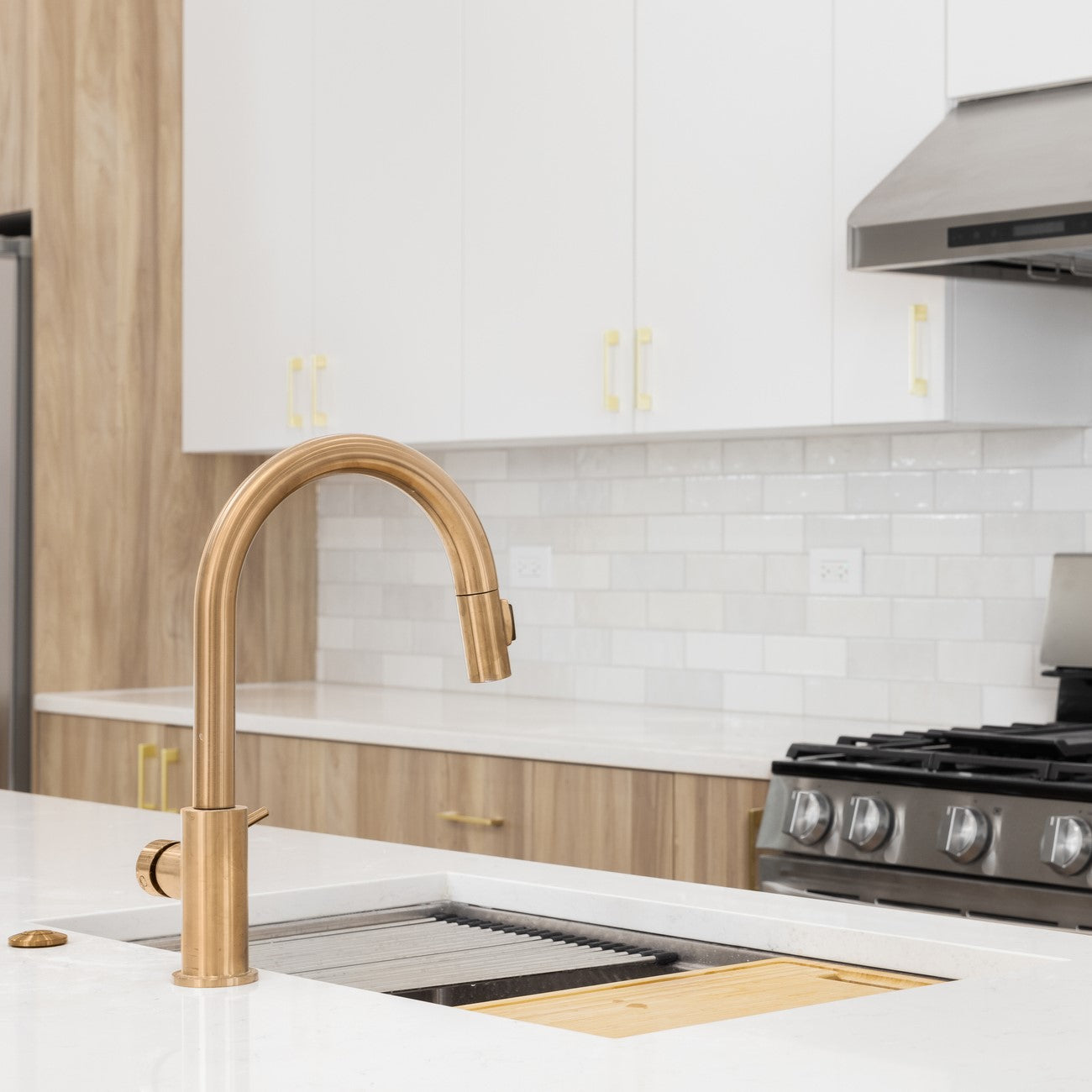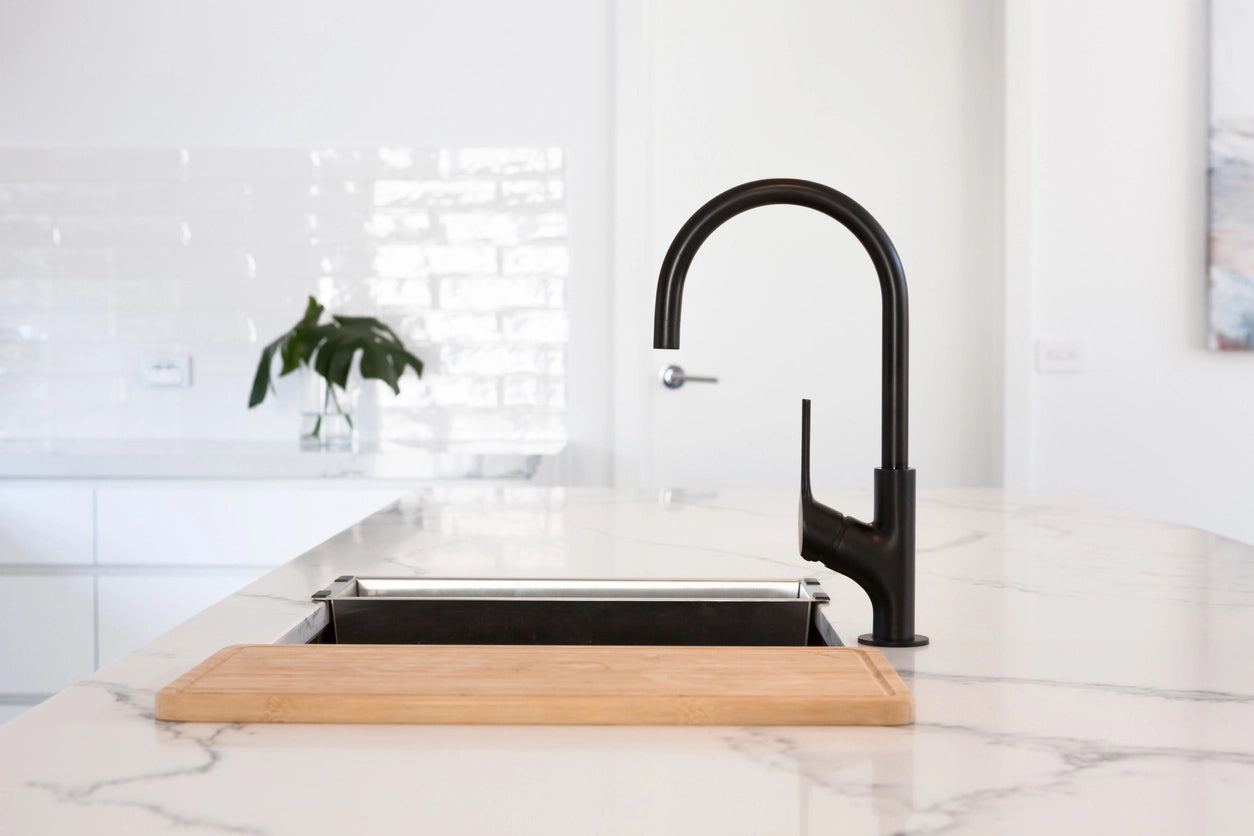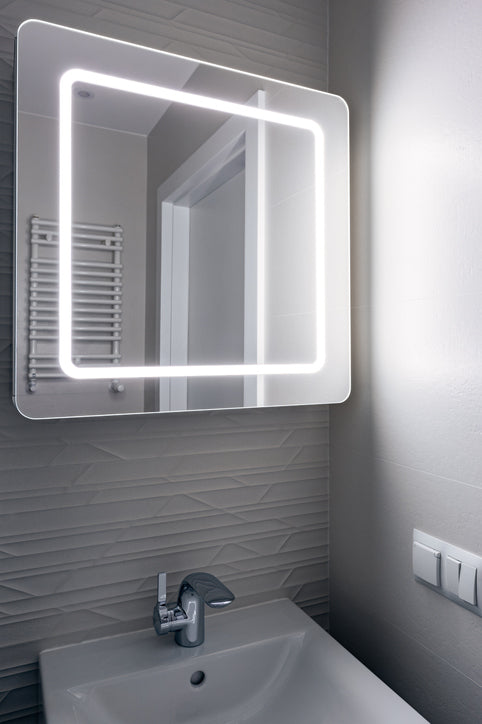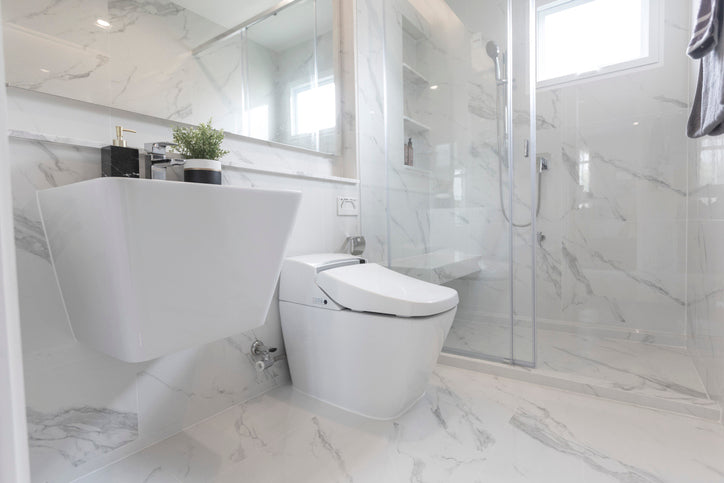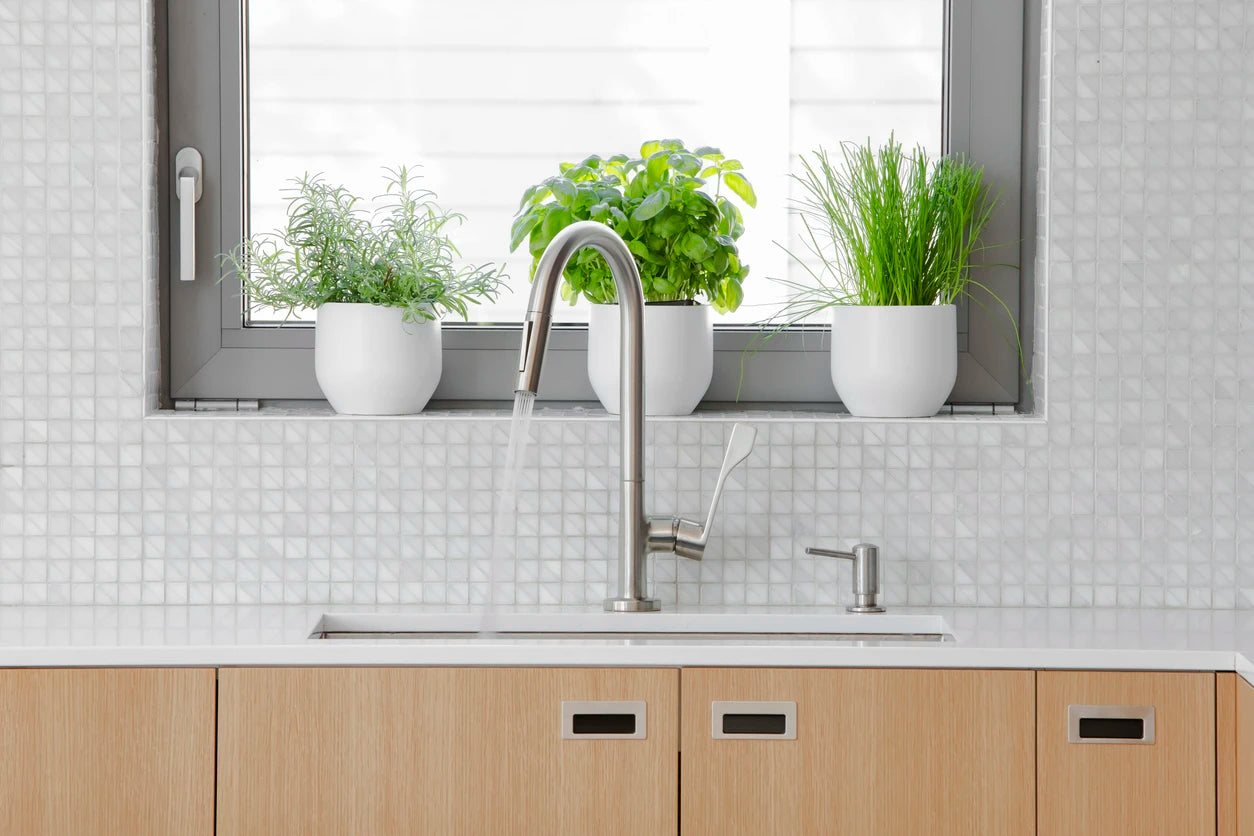
Have questions about sinks and tapware?
FAQs for Sinks
1. How to choose the right sink? Choosing the right sink can depend on a variety of factors, including your personal preferences, the style of your kitchen or bathroom, your budget, and your needs in terms of functionality and durability. Here are some factors to consider when selecting a sink:
- Size and configuration: Measure the space where you want to install the sink and determine what size and configuration will fit best. Consider whether you want a single or double bowl, a top or undermount sink, and how much counter space you'll need around the sink.
- Material: Sink materials can vary from stainless steel, granite, and composite materials. Consider the durability, maintenance, and aesthetic appeal of each material.
- Style: Choose a sink that complements the style of your kitchen or bathroom. For example, farmhouse sinks are popular in rustic or country-style kitchens, while sleek and modern designs work well in contemporary spaces.
- Functionality: Consider how you'll be using the sink. Will you be washing large pots and pans, or do you need a small sink for hand-washing? Need a sink with a built-in rails to put a chopping board, colandar and etc for example? Consider our workstation sinks.
- Cost: Sinks can range in price from budget-friendly to high-end luxury models. Consider your budget and weigh the features and benefits of each sink you're considering.
- Installation: Depending on the sink you choose, it is highly recommended you use a professional plumber who can measure the cut-out sizes, consider your needs and space in the area. Therefore, consider the installation cost as well.
- By considering these factors, you can choose the right sink that meets your needs, complements your decor, and fits your budget.
2. What do I need to consider when choosing a bathroom sink or basin?
- When selecting a bathroom sink or a basin, it's important to consider factors such as the size of your bathroom, your design preferences, and your budget. Ultimately, the right sink will be one that meets your needs in terms of functionality and aesthetics, while also fitting within your budget and complementing the overall style of your bathroom.
- When selecting a laundry sink, it's important to consider factors such as the size of your laundry room, the types of items you'll be washing, and your budget. A larger sink may be necessary if you'll be washing large items like comforters or pet beds, while a smaller sink may be sufficient for washing small tools or delicate fabrics.
- When selecting a kitchen sink, it's important to consider factors such as the size of your kitchen, your design preferences, and your budget. Ultimately, the right sink will be one that meets your needs in terms of functionality and aesthetics, while also fitting within your budget and complementing the overall style of your kitchen. By selecting a high-quality kitchen sink that meets your specific needs, you can make cooking and cleaning tasks more efficient and enjoyable.
- When selecting sink accessories, it's important to consider factors such as the size and style of your sink, as well as your specific needs and preferences. By choosing high-quality sink accessories that are designed to work with your sink, you can improve the functionality and convenience of your kitchen or bathroom, making everyday tasks easier and more efficient.
- A workstation sink is a type of kitchen sink that comes with built-in accessories like cutting boards, colanders, and drying racks that can be used to create additional workspace and improve the efficiency of your kitchen. It is designed to offer more functionality than a traditional sink, allowing you to perform a variety of tasks without having to move back and forth between your sink and your countertop. Our workstation sinks feature integrated rails or channels that allow you to slide accessories that come with the purchase, a cutting board, colander, roll mat and etc, making it easy to prep and clean up all in one place. A workstation sink can also save space from your kitchen bench, while organising the little pieces of accessories in one place.
FAQs for Tapware
1. What is tapware?
- Tapware refers to the fixtures or devices used for controlling the flow of water in plumbing systems. It includes faucets, taps, and other water dispensing devices commonly found in kitchens and bathrooms.
2. How do I choose the right tapware for my kitchen or bathroom?
- Consider your aesthetic preferences, the functionality you need, and the compatibility with your existing plumbing. Look for durable materials, such as brass or stainless steel, and choose a style that complements your overall design.
3. What are the different types of tapware available?
- Common types include mixer taps, single lever taps, pillar taps, wall-mounted taps, and sensor-activated taps. Mixer taps, for instance, allow you to control both hot and cold water flow with a single lever.
4. What is the difference between single lever and dual handle taps?
- Single lever taps have a single handle for controlling both hot and cold water, while dual handle taps have separate handles for hot and cold water. Single lever taps are often preferred for their convenience and modern aesthetics.
5. How do I maintain and clean tapware?
- Regularly clean tapware with a mild soap or a vinegar solution to remove water stains and deposits. Avoid using abrasive cleaners that could damage the finish. Periodically check for leaks and tighten any loose components.
6. Can tapware be installed by homeowners, or do I need a professional plumber?
- Although installations can look easy, however it is always recommended to consult a professional plumber even if you have basic plumbing skills.
7. How can I prevent tapware from leaking?
- To prevent leaks, ensure that all connections are properly tightened during installation. Regularly inspect and replace washers or cartridges if you notice any signs of wear. If you're uncertain, consult a plumber to address the issue promptly.
8. Are tapware finishes durable?
- The durability of tapware finishes depends on the quality of the materials used. Chrome, stainless steel, and brushed nickel finishes are generally durable and resistant to corrosion. Proper care and maintenance also contribute to the longevity of the finish.
9. Do tapware products come with warranties?
- Yes, our tapware products come with warranties however may vary, so it's essential to read and understand the terms and conditions. Keep your proof of purchase and follow the recommended maintenance to validate the warranty.
10. Can tapware be used in outdoor spaces?
- Some tapware can be used for outdoor, however consult with a professioanl plumber to check the product specifications and the actual setting where the tapware is going to install to ensure it can withstand outdoor conditions. Outdoor tapware is often made with materials that resist corrosion and weathering.

